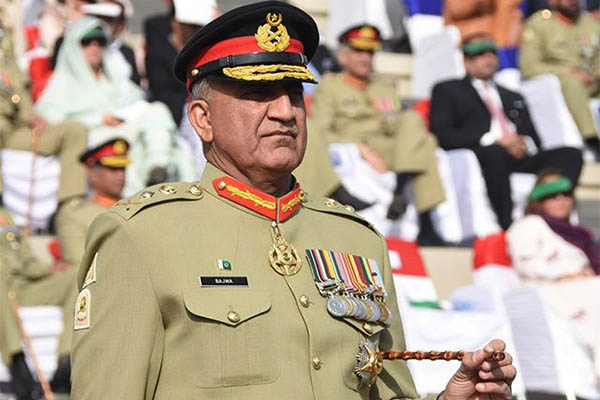
Courtesy ISPR
In parallel, federal cabinet approves amendment to legislate procedure to extend tenure of Army chief
The Pakistan Tehreek-e-Insaf-led government on Thursday filed a petition with the Supreme Court of Pakistan seeking a stay order on the court’s ruling over an extension to the tenure of the Chief of Army Staff.
On Dec. 26, 2019, the government had submitted a review petition on the top court’s verdict, claiming it should be set aside as it did not reflect the “pulse of the public.” The move came almost a month after a three-member bench of the apex court had ruled that Gen. Qamar Javed Bajwa could continue as the Army chief for six more months, allowing Parliament time to legislate the procedure for the extension or reappointment of the position. If no legislation was forthcoming within six months, said the ruling, the government would have to name a new Army chief.
In the petition filed today, the government has requested a stay order to remain in effect until the court rules on the review petition. It also reiterates the government’s request for the formation of a larger bench, comprising five judges, to hear the review petition.
Meanwhile, rather than wait on the court proceedings, the federal cabinet on Wednesday approved a draft amendment to change Section 172 of the Army Act, 1952, which deals with the re-appointment of reservists and retirees of the armed forces. Under the amendments, which the government has said would be placed before Parliament for final approval on Friday, the age of retirement for all three services chief has been raised to 64. In addition, a new procedure has been laid down for any extension to their service. The president, under the amendment, would be able to extend the tenure of any service chief by three years on the advice of the prime minister.
This is a curious move, as by making legislation, the government is de facto accepting the court’s ruling—while also contesting it and demanding it be set aside over “legal and constitutional faults.”
The crisis over Army Chief Gen. Bajwa’s extension broke out on Nov. 26, 2019, after the Supreme Court suspended a notification issued by Prime Minister Imran Khan in August 2019. The court said there were irregularities in the process and said established practice is not a proper replacement for legal measures.
